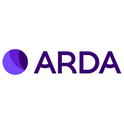AIF Study by PricewaterhouseCoopers Reports Robust Financial Indicators In Multibillion Dollar Timeshare Industry
The AIF annual benchmark study by PricewaterhouseCoopers (PwC) of the financial performance of the timeshare industry released today by the ARDA International Foundation (AIF) underscores the ongoing, robust financial performance of the multibillion dollar vacation ownership industry. The study, which focused on an industry subset of 40 companies encompassing 298 timeshare resorts in active sales1, showed key financial ratios such as sales and marketing costs remained in-line as companies posted 14.3 percent growth in 2006. Each year, PwC surveys a group of timeshare resort development companies to take the industry’s financial pulse—analyzing industry trends and setting benchmarks on product pricing, sales, marketing costs, financing, and other financial indicators. This year’s findings reveal a 14.3 percent year-over-year increase in net sales of timeshare resorts in active sales, as the industry subset reported $5.8 billion in U.S. net originated sales. Average net sales per active resort were $19.6 million.
“This latest financial research demonstrates that the industry’s financial performance remains on track with satisfying the growing popularity and consumer demands for vacation ownership,” said Howard Nusbaum, president and chief executive officer of ARDA.
Half of respondents sold more than 2,500 timeshare weeks during 2006, with the largest companies experiencing the most rapid growth (15.5 percent increase in net originated sales). While most timeshare companies continue to sell timeshares that are based on ownership of an interval week at a specific resort, points-based products, in which an owner has purchased points or credits backed by a usage right to a club's resorts, have achieved a prominent position. Of the $5.8 billion of net originated timeshare sales in the U.S. during 2006 (excluding fractional sales), $3.4 billion (57.7 percent) were classified as interval week sales, while $2.5 billion (42.3 percent) were classified as points sales.
Timeshare sales in many locations exhibit seasonal patterns, as popular vacation periods correspond to heightened sales activity. As a result, timeshare sales are strongest during the third quarter (July to September).
Activity during each quarter of 2006 showed substantial growth from the prior year, Compared to 2005, net sales in 2006 were 13.1 percent higher in the first quarter, 18.9 percent higher in the second quarter, 10.6 percent higher in the third quarter, and 15.0 percent higher in the fourth quarter.
“This research takes industry analysis a step further than the headline numbers on sales growth, and serves as an insiders' barometer. The latest findings show benchmarks in a rapidly growing sector,” explained Scott Berman, a PricewaterhouseCoopers partner.
The weighted average price of a timeshare interval, or week, sold during 2006 was $17,620, and comparable set companies reported an increase of 5.4 percent over 2005 prices. The increases reflect changes in timeshare week prices as well as any changes that may have occurred in the types of units sold. Approximately 79 percent of respondents reported higher average prices in 2006 than in 2005, indicating that price increases were broad-based.
Study results reflect the continued importance of financing provided to consumers at the point of sale. Companies reported financing 76.1 percent of the dollar value of timeshare sales in 2006. The remainder of the sales was cash or cash-out within the first 90 days. The average interest rate on new consumer loans in 2006 was 14.1 percent, and companies reported receiving average down-payments equal to 14.5 percent of the contract price.
The study participants included eight publicly traded companies, or subsidiaries of publicly traded companies, which accounted for 71.0 percent of net sales reported, and 32 privately owned companies. Geographically, the survey respondents broke down as follows: 43 percent of companies are headquartered in the Southeastern U.S., including Florida; 28 percent in the Northeast and Midwest; and 23 percent in the Southwest and West. Two of the respondents are based in Canada, and one respondent is based in the Caribbean.
The PricewaterhouseCoopers study supports the findings of an AIF study released earlier this year on the full industry that also points to the dramatic strength in vacation ownership, with increases in new owners and occupancy rates.2
1 Companies with resorts that reported 100 or more new sales during 2006.
2 Timeshare sales in the U.S. climbed 16 percent during 2006 to $10 billion, according to a comprehensive industry study released in September by AIF. According to the survey of 596 timeshare resorts, there were a total of 1,615 vacation ownership resorts operating in the U.S. as of January 1, 2007.
The American Resort Development Association is the Washington D.C.-based professional association representing the vacation ownership and resort development industries. Established in 1969, ARDA today has over 1,000 members ranging from privately held firms to publicly traded companies and international corporations with expertise in shared ownership interests in leisure real estate. The membership also includes timeshare owner associations (HOAs), resort management companies, and owners through the ARDA Resort Owners Coalition (ARDA-ROC).
The ARDA International Foundation (AIF) conducts research and develops education programming for the timeshare industry. The Foundation’s mission is to “support, conduct, and disseminate research and technical studies that will enhance and improve knowledge for the public and the industry, and develop educational resources that will optimize value, operations, acceptance, and service for the industry and the public.”
Lou Ann Burney
202-371-6700
ARDA
